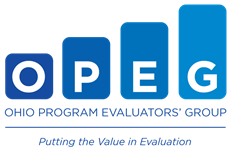https://www.coursera.org/course/criticalmanagement
Critical Perspectives on Management
Rolf Strom-Olsen
Innovative management and inspired leadership need more than rules and knowledge: imagination, creativity and lateral thinking are also integral. This class offers students the opportunity to consider different ways to ask questions, ponder problems, discover opportunities and explore key concepts that inform the contemporary practice of management.
Workload: 2-3.5 hours/week
| November 2013 (6 weeks long) |
Sign Up |
| Future sessions |
|
About the Course
Designed for students who are thinking of a career in management or consulting, this course brings the methodology and critical apparatus of the humanities into the field of management to fulfill two basic objectives. The first objective is to place in broad critical perspective how we think about the function and culture of management and to expand the boundaries of how managers understand their role within a firm, how they take decisions, set priorities and benchmark success and failure. The second objective is to help students learn how to build robust analytical frameworks informed by different perspectives in order to evaluate concepts and solve problems.
The course draws upon diverse material, ranging from history to economics, to encourage students to think about management beyond its traditional confines. Topics include the function of the firm, the role of incentive, the ways in which narrative forces shape decision making, and how market relationships define the managerial culture in ways that can lead to sub-optimal outcomes.
Course Syllabus
Please note: the content here may change slightly in the final course.
Week 1 Managing 'à la mode'
Where do our ideas about management come from? Far from being a universal, stable set of principles, management practices are, in fact, remarkably trend-driven. Like bell-bottoms or the zither, things that once seemed like a good idea can suddenly be discredited and replaced - only to come back into fashion. In the opening class, we ask what forces are responsible for shaping management culture and how much faith we should have in their legitimacy.
In this class, we will establish some broad categories of enquiry which will inform the remainder of the course.
Week 2 Managing people
Drawing from our opening discussion, we look at the first of our critical categories: how firms manage what most identify as their most important asset, their employees. But how strong is that commitment, and what are the hidden, and in some cases, open costs and benefits from different approaches to managing people? We will look at several contrasting examples and consider their outcomes.
Week 3 Managing risk
Firms that fail are generally those that have not mitigated their risk effectively. We will consider what strategies exist to mitigate risk, and how the value of these strategies is perceived both within the management culture as well as by capital markets.
Week 4 Managing the future
In a famous experiment (the "Marshmallow Experiment") involving preschoolers, a Stanford psychology professor found that a majority were unwilling or unable to defer gratification to obtain a greater reward (i.e. more marshmallows). Simply put, in this session we will ask why so many firms behave like preschoolers.
Week 5 Managing the market
For many publicly-traded firms, the most important thing to manage is ... capital market expectations. In this class, we will review the lively debate that has emerged about how firms deal with investor expectations and the consequences this has had for firm outcomes.
Week 6 Managing success
We end on a positive note, looking at the example of how one firm with one of the most recognisable global brands has over the course of a century developed strong management practices for its people, its risk, its future and its market, that have helped it to overcome serious challenges to remain a flourishing enterprise.
Recommended Background
No background is required; all are welcome!
Suggested Readings
Complementary copies of the course readings will be made available.
Course Format
The class will be made up of video lectures, punctuated by a variety of multimedia material, slides, and online exercises. There will also be 2 short homework assignments that constitute the evaluated part of the class.
